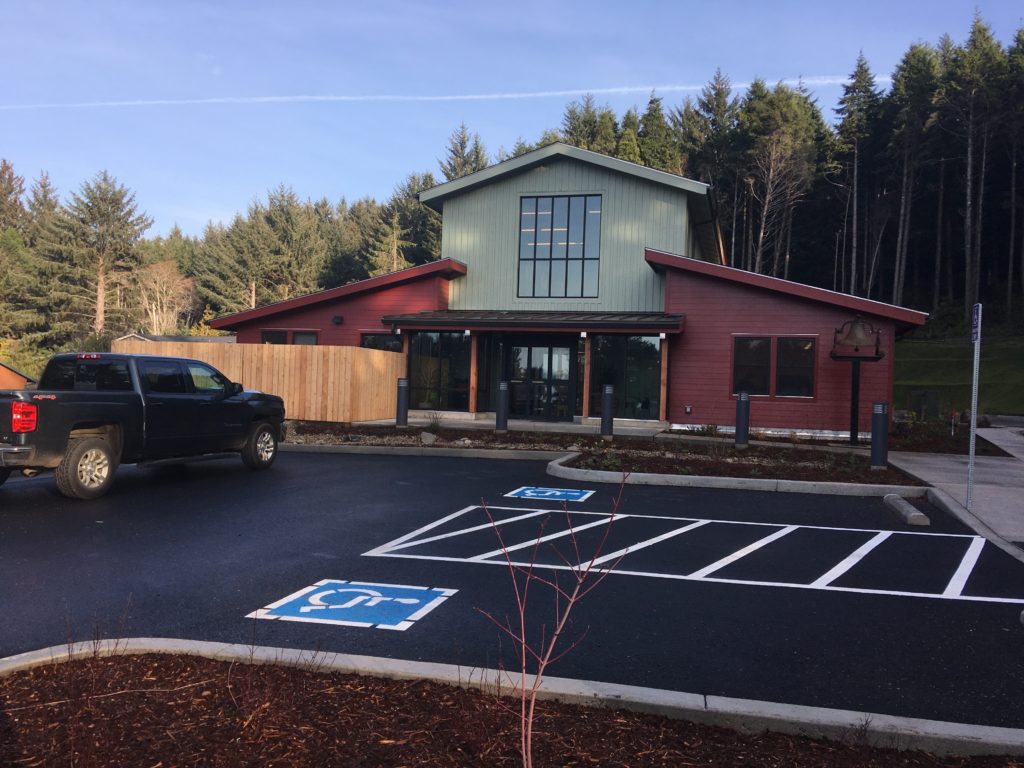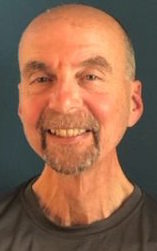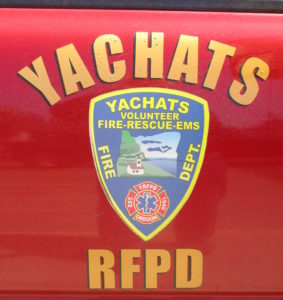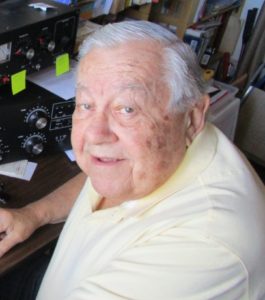
By QUINTON SMITH/YachatsNews.com
The five-member board that oversees the Yachats Rural Fire Protection District has scheduled a special meeting for Monday to delve deeper into two money issues – whether to ask voters to raise their taxes in order to hire more personnel and debate how big a raise to give its top administrator.
Board members have been quietly working in pairs the past three months to flesh out details of how much it would cost to add paramedic/firefighters – likely one or two — to its staff.

And, at its meeting last week, four board members balked at a motion for a 7.5 percent salary increase for Frankie Petrick, who wears two hats at the district’s paid administrator and volunteer fire chief. The board members said they wanted more details before deciding Petrick’s raise.
The board gave district employees a 1.2 percent cost of living increase this year; previous cost of living raises have ranged from 2.9 percent to 3.5 percent.
Few, if any members of the public are aware of the district’s lightly-advertised meetings or attend them, whether they be in person at the fire station before pandemic restrictions, or now online via Zoom. And, since the completion of its $8 million station last year, most meetings consist of wading through explanation of calls, equipment issues, small policy changes, budgets and the details of running a small fire district.
The larger issue of staffing was first broached in the fall by Drew Tracy, a new board member who has been a police chief and assistant chief on the East Coast and has extensive training in incident response. Tracy grew concerned over staffing after September wildfires, how the district would respond to such an event locally, strains on staffing at its main station in Yachats and its inability to regularly staff a substation up the Yachats River.

Tracy and board member Ed Hallahan have been gathering information and meeting with Petrick and administrative assistant Shelby Knife to determine how much it would cost to add personnel and the size of a property tax levy to pay for them. The district has six paid firefighters who are also qualified as paramedics or emergency medical technicians.
“I don’t think people realize how limited the personnel is,” Tracy told YachatsNews in an earlier interview. “But what are our options and where will the money come from?”
Salary motion raises eyebrows
But it was Hallahan’s motion last week to increase Petrick’s salary by 7.5 percent that raised eyebrows and questions among the other four board members.
Petrick, 76, wears three hats in the unusual fire district. She has been a volunteer for 45 years, and the volunteer fire chief – in charge of incident response – since 2004. That position pays no salary, except for expense reimbursements. Petrick became the district’s administrator in 2005 after working as a board clerk before that. That position is salaried and Petrick’s current pay is $87,000 a year.

Petrick is also one of two owners of South Lincoln Ambulance, a nonprofit corporation that provides the fire district with a single ambulance staffed by Yachats Fire personnel.
But Petrick’s administrative position does not include a retirement plan, unusual for a public entity. She also uses her own truck for work and is not reimbursed for mileage or provided a district vehicle, as is typical with other fire departments.
During their discussion last week, longer-serving board members said Petrick had regularly turned down previous raises, especially when district finances were tight. Petrick told the board last week she would go along with any raise decision this year.
“There’s been years and years when the district administrator took nothing,” said Hallahan, adding that he suggested the 7.5 percent raise to prompt a discussion..
It did.
Gratitude for years of service
Board members consistently expressed gratitude for Petrick’s work and years of service. They were worried about how the public would view a large raise, but acknowledged that she turned down many previous increases.
They also asked for chief/administrator pay for comparable fire districts in Oregon and a 10-year history of district pay and raises.
“I don’t want to be pulling a number out of nowhere,” said board chair Katherine Guenther.

Donald Tucker also wondered why there were no state fire standards on which board members could base their yearly evaluations and why there was no established salary scale for the district’s two administrators.
“She should be paid fairly … and she should be paid fairly across what’s being paid in the industry,” Tucker said.
But board members expressed concern how a large salary increase would look on top of what they seemed to think would be a $6,000 district contribution for Petrick into a retirement and incentive account for volunteers.
The district joined a statewide retirement/incentive program for volunteers in 2015 to encourage volunteers to join and stay. But it has made only one deposit – in 2016 — into the account, which it controls.
The contribution for Petrick would be $3,875 this year, Knife told YachatsNews this week. The $6,000 that the board seemed to think she is getting is the maximum allowed by the IRS – not the actual amount of the district’s contribution.
Because Petrick has been a volunteer for 45 years – still responding to most fire calls as the volunteer chief – her bonus has reached four figures. Knife, who has been a volunteer for 10 years, would get $900 put into his retirement/incentive account.
Board members admitted that Petrick’s dual roles as district administrator and volunteer fire chief overlap and are confusing. Tucker hinted the board needs to examine those positions when Petrick eventually retires and create specific duties and standards for a single job.
“The district is mature enough that we need to take the next step,” he said.
Board members said they appreciated and valued Petrick’s work and encyclopedic knowledge of local history and fire issues. But they worried how the public would view it, especially in light of a possible levy request for more personnel.
“It’s not like all of a sudden we’re flush with money,” Guenther said. “I just wish we had all the money in the world to show how we feel about her.”



